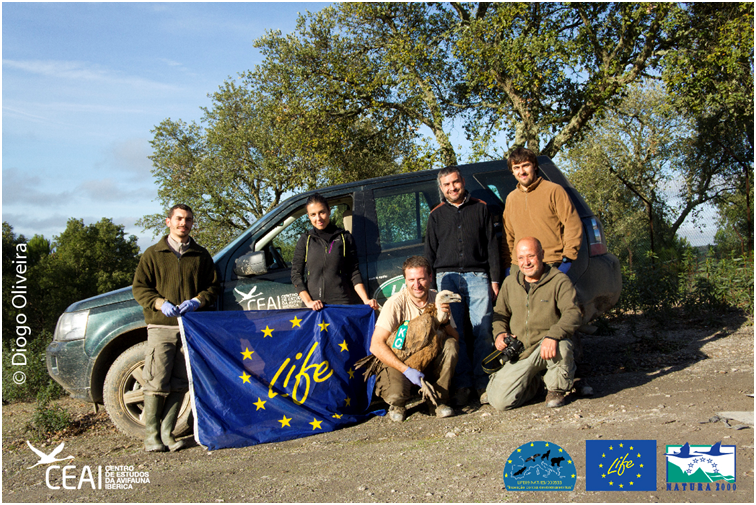31 griffon vultures are tagged to evaluate the impact of poison use!
On December 2012, a team of the LIFE project ‘Innovation Against Poison’ proceeded with the first tagging phase of scavenger birds in the area of Moura-Mourão-Barrancos, bioindicator species of poison use. 31 griffon vultures were therefore captured and identified with wing tags, by a specialized team in the capture and handling of these scavenger birds, inside the feeding station for black vultures, built under LIFE Habitat Lince Abutre at the Contenda estate, located at Moura’s municipality.
This action comes within a cooperation agreement between LIFE Habitat Lince Abutre and LIFE Innovation Against Poison, to articulate efforts in actions regarding the illegal use of poison (learn more on this
cooperation and about
LIFE Innovation Against Poison!).
Each bird was identified with a metal ring (of the Center for the Study of Migration and Protection of Birds) and a wing tag, which contains a two-letter code or a letter and a number. This code is easily identifiable with the bird in flight and perched, and anyone can report their sighting to project technicians (
cmachado@ceai.pt or i
nfo@ceai.pt) or registering it in
http://www.maquiaambiental.com/avistamientos.html
The set of recorded observations gives a significant amount of information on populations of these wild species that are particularly sensitive to the use of poisons, allowing conservation efforts that are directed to them to be as accurate as possible.
The use of this type of tags is a safe and harmless method for identifying these birds and the cares followed in its application ensure that no damage was caused to any of the tagged birds.
The follow-up of these populations and the information collected is an essential contribution to the assessment of the impact in the use of poisons on wildlife in this region and the involvement of everyone in the fight against the illegal use of poisons.
